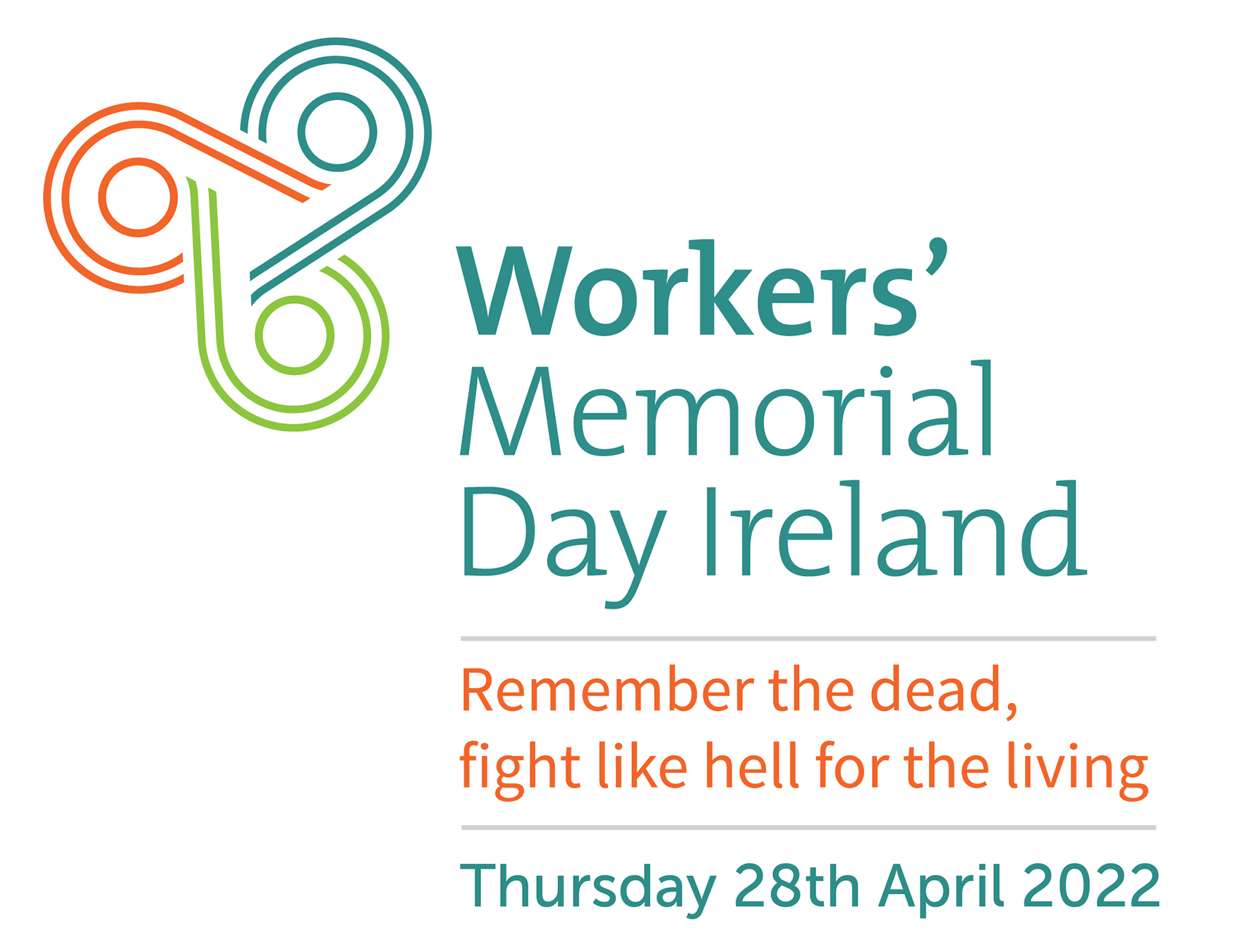
Thursday 28th April 2022 – Remember the dead, fight like hell for the living
Congress, along with the Government, the Health and Safety Authority (HSA), Ibec, and the CIF will collectively mark Workers’ Memorial Day Ireland on April 28th at the national and annual commemorative event to remember people killed, injured, made ill and bereaved through work-related accidents.
Congress President Kevin Callinan will be joined by Sharon McGuinness, CEO of the Health & Safety Authority, and Minister Damien English TD who will lay a wreath in Dublin’s Garden of Remembrance on behalf of the state to remember those workers we have lost. They will be joined by members of the Deasy family, whose son Lorcan died in a construction accident.
In Ireland in the ten year period between 2012 and 2021, 481 people were killed in work-related incidents and many thousands more were severely injured or made ill. In 2021, 38 people were killed in accidents. We know that in addition to these official figures, we have also lost many front-line workers to Covid-19 over the last 2 years.
Part of the tragedy of these losses is that we actually know how to stop workplace fatalities and injuries. The evidence is there. It involves workers and managers cooperating to create safe systems of work, to assess hazards and to reduce risks. It involves education and training for workers and management and support for the role of safety reps in our workplaces. It requires monitoring, prevention, protection, and reporting. And it also requires compliance measures including inspections, and penalties for those who do not take their legal and moral responsibilities seriously.
Congress will therefore be supporting a new campaign promoted by the European Trade Union Confederation for “Zero Deaths” at work. Zero death at work is not a utopian dream. The trend in fatal workplace accidents is down and eradication of fatal accidents is achievable. Every death at work is one too many.
The EU’s current health and safety strategy says “All efforts must be deployed to reduce work-related deaths as much as possible, in line with a Vision Zero approach to work-related deaths”. These are fine words, but the actions promised in it will not achieve zero deaths. However, we know that the tools exist to make this happen. It just needs commitment and political will. We need the EU, our own government, our partners gathered here today, and trade unions also, to “walk the walk” rather than “talk the talk”.
This means a concerted joined-up effort to
– Prevent workplace accidents and occupational diseases, stopping exposure to hazardous and cancer-causing substances and being ready for further pandemics
– Making the physical and mental health of workers the point of departure when organising work and designing the workplace.
While fatal accidents are declining, occupational diseases are increasing. Some 100,000 workers in Europe die every year from occupational cancer due to exposure to hazardous substances. Long working hours and psychological pressure at work cause heart-disease, stroke, depression, and suicide. Bad posture, repetitive movement and heavy lifting cause backpain and other ‘musculoskeletal’ disorders and in turn cause depression and people being unable to work.
Source: ICTU

